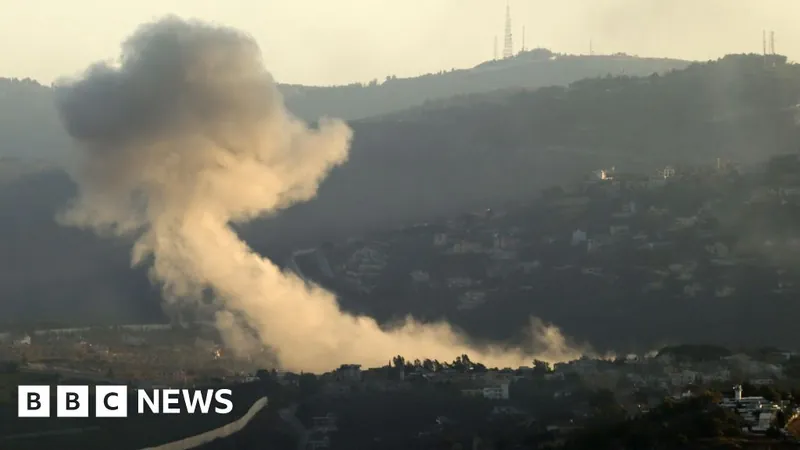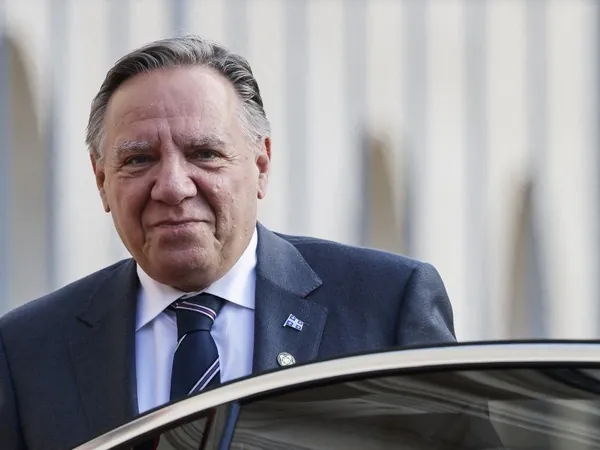
Tragic Toll: Eight Israeli Soldiers Killed in Fierce Lebanon Conflict as Tensions Rise
2024-10-03
Overview of the Conflict
In a significant escalation of conflict, the Israeli military has reported the deaths of eight soldiers in southern Lebanon during confrontations with the militant group Hezbollah. This marks Israel's first military fatalities since the initiation of a ground invasion aimed at undermining Hezbollah's operational capabilities.
Hezbollah's Offensive
Hezbollah, a militant organization supported by Iran, claimed responsibility for attacks that destroyed Israeli tanks, asserting that they have sufficient resources to repel Israeli forces. Reports from the battlefield indicate that over the course of the fighting, Hezbollah engaged Israeli troops using anti-tank missiles, ambush tactics, and mortar fire, resulting in significant Israeli casualties.
Israeli Military Response
The Israeli Defense Forces (IDF) have bolstered their operations in Lebanon, deploying additional infantry and armored units to dismantle what they term 'terrorist infrastructure' in border villages closely tied to Hezbollah. Since the onset of Israeli airstrikes, at least five civilian casualties have been reported, including those from an airstrike targeting a multi-storey building in the Bachoura district of central Beirut, close to the Lebanese parliament and UN offices. This strike, reportedly hitting a Hezbollah-affiliated health center, highlights the increasing intensity and reach of the conflict.
Humanitarian Crisis
In a grim predicament, Lebanon's health ministry reported that 46 people have died and 85 have been injured in airstrikes in the last 24 hours alone, with the ramifications of these attacks leaving a staggering humanitarian crisis in their wake—over 1.2 million people have been displaced amidst ongoing hostilities throughout Lebanon.
Rising Violence and Political Implications
The violence has surged after nearly a year of mounting tensions linked to the Israel-Hamas conflict in Gaza, with Israel seeking to protect its border communities from Hezbollah incursions. The militant group, which has long been a formidable force in Lebanese politics and military matters, has been dealing with significant losses due to the relentless Israeli air campaign that has reportedly killed over 1,200 people across Lebanon.
Prime Minister's Statement
Prime Minister Benjamin Netanyahu expressed condolences for the fallen soldiers, framing their sacrifice as part of a larger battle against what he described as 'Iran's axis of evil.' He remains firm in his belief that the offensive will ultimately degrade Hezbollah's military capabilities and allow for the safe return of thousands of displaced Israelis.
International Monitoring and Reactions
In parallel, the United States has closely monitored the situation, with President Joe Biden announcing a lack of support for an Israeli strike on Iranian nuclear facilities in light of these developments. The ongoing rocket exchanges between southern Lebanon and northern Israel are symptomatic of an increasingly volatile situation, exacerbated further by both sides’ ongoing military actions.
Civilians in Beirut
In Beirut, the already fragile urban landscape is becoming a ghost town as civilians flee in search of safety. Reports from the southern suburbs describe nearby streets eerily quiet with shops shuttered and displaced families congregating in makeshift camps, overrun by the humanitarian crisis. The chilling images coming out of Dahieh, where Hezbollah has substantial support, illustrate a community in turmoil—one that bears the scars of heavy bombardment.
Hezbollah's Stance
Hezbollah spokespersons maintain that their network remains intact despite significant Israeli efforts, promising to recover and retaliate against any incursion. As the conflict escalates, the situation on the ground grows more precarious, with no clear resolution in sight.
The Broader Implications
As we watch these developments with trepidation, the international community is left grappling with the implications of this conflict—one that has deep historical roots and involves geopolitical stakes far beyond those immediately affected by the violence. The world now waits to see how far the tides of battle will turn and what the long-term consequences will be for both Lebanon and Israel.









 Brasil (PT)
Brasil (PT)
 Canada (EN)
Canada (EN)
 Chile (ES)
Chile (ES)
 España (ES)
España (ES)
 France (FR)
France (FR)
 Hong Kong (EN)
Hong Kong (EN)
 Italia (IT)
Italia (IT)
 日本 (JA)
日本 (JA)
 Magyarország (HU)
Magyarország (HU)
 Norge (NO)
Norge (NO)
 Polska (PL)
Polska (PL)
 Schweiz (DE)
Schweiz (DE)
 Singapore (EN)
Singapore (EN)
 Sverige (SV)
Sverige (SV)
 Suomi (FI)
Suomi (FI)
 Türkiye (TR)
Türkiye (TR)